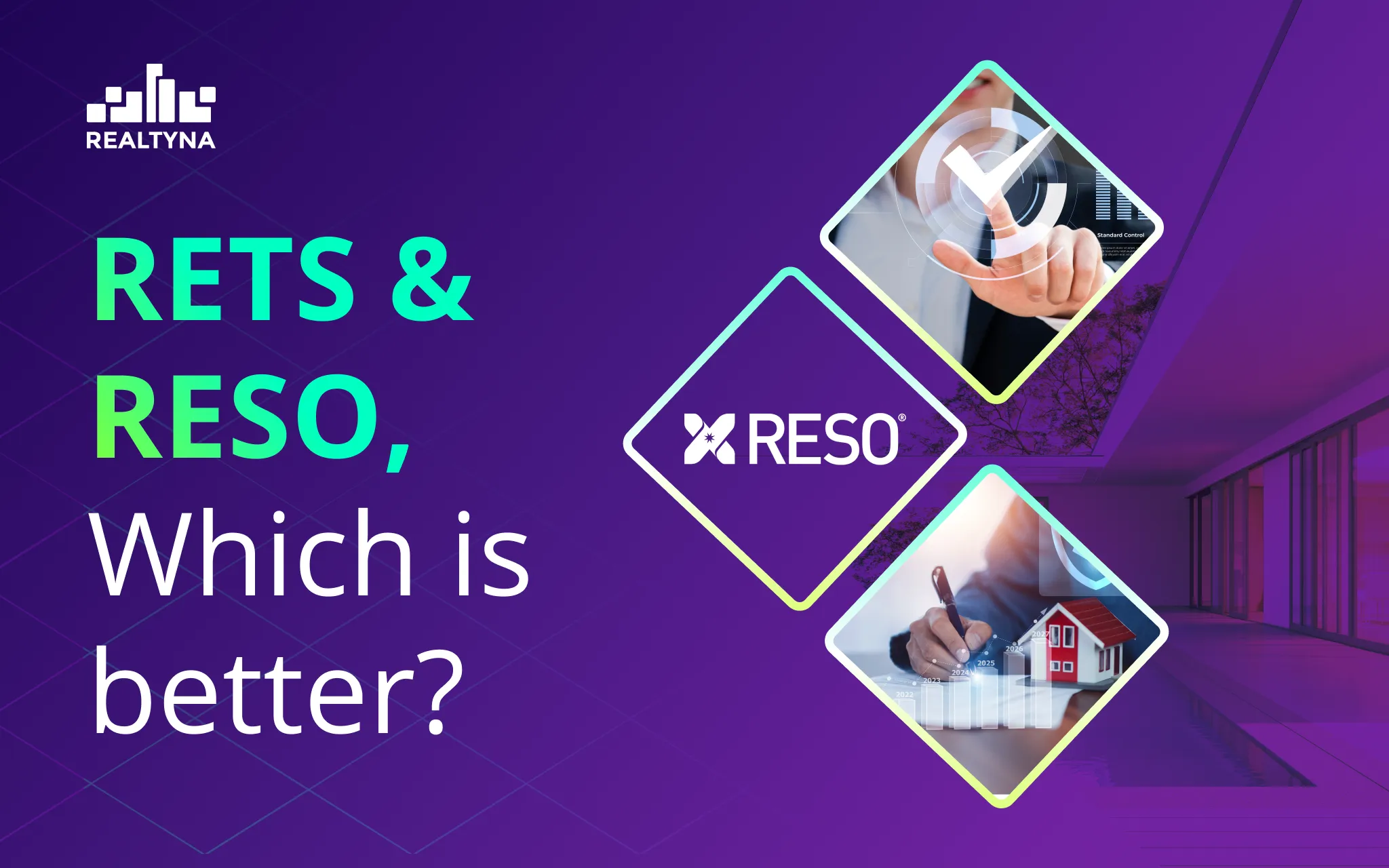
What Is RETS?
Please note that the Real Estate Transaction Standard (RETS) has been deprecated and is no longer recommended for use in MLS/IDX integration. Consumers are advised to use the Real Estate Standards Organization (RESO) Web API, which provides a more efficient and secure way of accessing MLS/IDX data. We strongly encourage all users to transition to RESO Web API for a better and more reliable experience. Learn more
RETS or the Real Estate Transaction Standard is a framework that streamlines property listing data transfers among MLSs, agents, and brokers to address decentralization in the real estate industry and speed the development of IDX, apps, and other products.
RETS Meaning
The Real Estate Transaction Standard (RETS) is an XML-based protocol used by the real estate industry to facilitate the exchange of data between software applications.
RETS allows different real estate software systems to share information such as property listings, broker and agent data, office information, and more.
RETS standardizes how real estate data is formatted, structured, and shared between technology systems. It provides a common language for software to request and provide information to each other.
This interoperability enables seamless data flow across platforms – from MLS systems to brokerage software to public websites.
What Does RETS Data Feeds Mean?
RETS data feeds contain listing information from Multiple Listing Services (MLSs) across the country.
They are aggregated by companies that collect data from various MLSs and provide it to real estate technology vendors, brokerages, and other businesses in the industry.
The most common types of data included in RETS feeds are listings (both active and sold), property details, photos, open house schedules, and tax/public records information. Some feeds also contain agent and office details. The specific data points provided depend on what the local MLS chooses to share and the level of access granted.
What is RETS Connector?
RETS Connector is a software application that facilitates data transfer between the RETS server and other applications. It acts as an intermediary between the RETS feed and your RETS-compliant applications.
RETS Connector retrieves listings and other property data from the RETS server and transfers it to client applications. It handles tasks like querying the RETS server, caching data, and providing a standard interface for applications to access the data.
What is RETS Access?
RETS Access refers to the ability to connect to and access RETS feeds. RETS Access is enabled through software and services called RETS servers and RETS clients.
RETS Servers: RETS servers are software applications that provide access to RETS data feeds. RETS servers are operated by MLSs, brokerages, and other data providers to distribute their real estate data.
RETS Clients: RETS clients are software applications that connect to RETS servers to access and utilize RETS data feeds. RETS clients include brokerage management systems, MLS front-ends, web portals, and real estate apps.
How Does RETS Work?
RETS is a data standard created by the National Association of REALTORS® to help consolidate the content and structure of property listings.
Known as the ‘common language’ of the real estate industry, RETS allows real estate professionals to more easily transfer real estate data among themselves.
For example with RETS, a real estate professional could use the same desktop computer program to access any Multiple Listing Service (MLS) that has adopted RETS and display property listings from these MLS on her site.
RETS also allows software designers to write for only one MLS language when creating new real estate programs. This greatly simplifies the development process.
Have you ever noticed how many companies are offering IDX for your local MLS?
RETS largely made this possible.
By standardizing the electronic property listing data, RETS has fostered a wealth of product options and competition around IDX.
It also allows agents and brokers who are members of multiple MLSs to easily connect their websites to several MLSs and co-mingle the data.
This is how RETS works.
RETS & RESO, Which is better?

When choosing a standard for real estate data exchange, RETS and RESO are two of the most well-known options. RETS, the Real Estate Transaction Standard, was created in the 1990s to facilitate data transfer between multiple listing services (MLSs) and real estate websites. RESO, the Real Estate Standards Organization, emerged later to develop data standards for the entire real estate industry.
RESO has several advantages over RETS that make it a more modern and comprehensive standard for real estate data exchange.
RESO covers a broader scope of real estate data, including not just listings but also information on agents, offices, and transactions.
This wider coverage allows RESO to standardize data across the entire real estate industry value chain, enabling better connectivity and usability of data. In contrast, RETS focuses only on MLS listing data, which provides a narrower set of benefits.
RESO’s data model and vocabulary are also more robust, reflecting the latest developments and needs in the real estate industry. As a result, RESO has become the preferred standard for large companies and organizations that require connectivity with a broad ecosystem of real estate software tools and services.
How to Switch from RETS to RESO Web API
We have another blog post that exclusively talks about how to migrate from RETS to RESO Web API.
That’s all, Thanks for reading.


Sorry, the comment form is closed at this time.